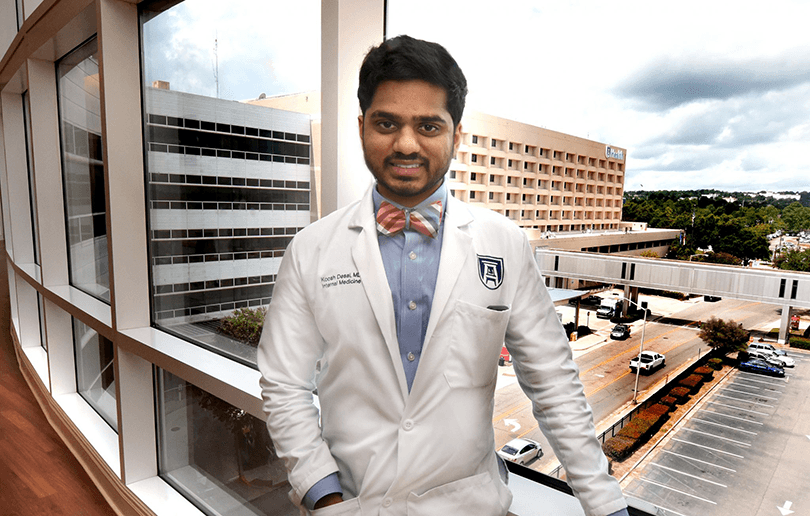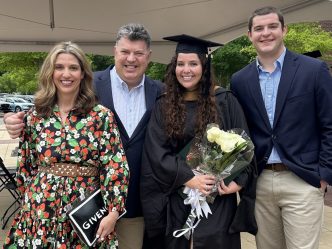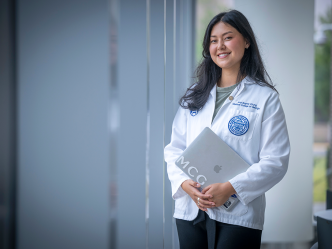AUGUSTA, Ga. – A third-year resident at the Medical College of Georgia at Augusta University is working to increase colorectal screening rates in some of Georgia’s poorest and most underserved areas.
Dr. Koosh Desai, a 2016 graduate of MCG who is completing his internal medicine residency at MCG and AU Health next year, recently co-founded the Georgia Colon Cancer Prevention Project. He is partnering with Georgia’s 294 Federally Qualified Health Centers to train health care providers on screening alternatives for colorectal cancers.
Statistics show that while around 500,000 people per year are served by FQHCs in Georgia, which provide primary care largely to underserved areas and populations, only around 30 percent of those eligible there are being screened for colon cancer.
“That’s way less than the state average of 60 percent,” Desai notes. “That means that around 100,000 active patients a year are not being screened.”
Why, he says, is likely for financial reasons. “Many patients can’t afford a colonoscopy, which has long been the standard for screening but can cost hundreds of dollars even with insurance, so they wait. And when they do come in, they are often acutely ill,” he says. “When I was studying at (MCG’s) Southwest Campus during my third and fourth years of medical school and working in oncology, we would see cancers that had progressed far beyond anything you would ever see in an urban setting, simply because people weren’t being screened.”
He wants to help by offering FQHCs an affordable alternative to colonoscopy, called a fecal immunochemical test, or FIT. This screening tool tests for hidden blood in a stool sample, which can be an early sign of cancer. FIT tests have proven to be as accurate as colonoscopy in most people without a family history and/or history of polyps, and they have the approval of the American Cancer Society and the American College of Gastroenterology, Desai says.
He has partnered with Hemosure, which manufactures FIT tests, to offer them to FQHCs for around $7 per test. The typical market price for the tests is around $20.
To date, the Georgia Colon Cancer Prevention Project has partnered with five FQHCs, which together serve over 90,000 patients each year. They have educated over 150 health care providers, and early data shows that there’s already been a 10 percent increase in screening.
“We know that number will continue to rise, which is amazing, because we also know that, with screening, there is a 60 percent decrease in colorectal cancer mortality,” Desai says.
The project has also launched the aptly named Kick Colon Cancer’s Butt campaign, which provides educational material to patients on risks, symptoms and screening guidelines for colorectal cancer. They also have received endorsements from the American Cancer Society and the National Colorectal Cancer Roundtable.
Future goals include taking the program to every FQHC in Georgia over the next 18 months and eventually using teleconferencing technology to reach other underserved areas across the country.
The project’s co-founder is Desai’s cousin, Dr. Minesh Mehta, a Pennsylvania gastroenterologist and a board member for Unified Healthcare for the Rural and Underserved, which is sponsoring the project.
 Augusta University
Augusta University




